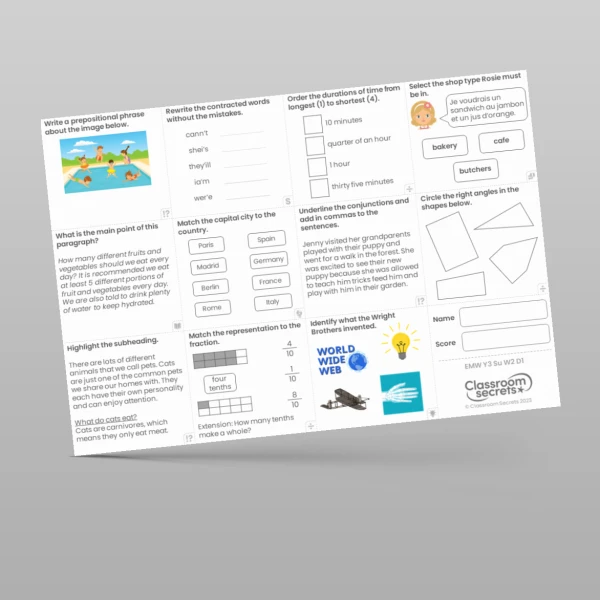

This Year 3 Recognise and Describe 3D Shapes worksheet contains two challenges, the first one is for children to complete the magic square, they must place 3D shapes in the grid so that the combined total faces in each row, column and diagonal is the same. The next challenge is to explore combinations of shapes which have a total of 20 vertices. We have provided some example answers, but this activity is all about children exploring the properties of 3D Shapes and solving the problems as they go. A great individual activity or it could be used in pairs or a group to get the children using the vocabulary related to 3D Shapes.
Curriculum Objectives
- Make 3-D shapes using modelling materials; recognise 3-D shapes in different orientations and describe them
Tags
Properties of Shapes
Summer
3G3b











